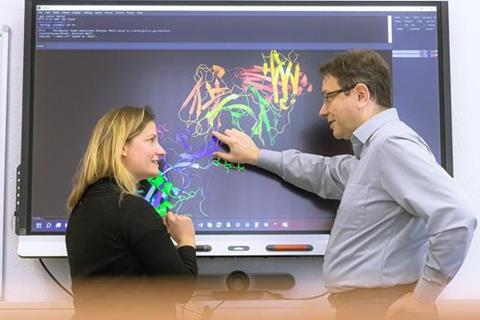Social upheavals such as globalisation, urbanisation and climate change promote and increase the likelihood and frequency of viral outbreaks that could lead to new pandemics.

With the outbreak and spread of the SARS-CoV-2 virus, the world experienced the existential and long-lasting impact that viral mutation can have. To be better prepared for a future pandemic, CEPI is investing in a research project to develop novel antigen designs at the Institute of Drug Discovery at the Faculty of Medicine, Leipzig University.
The team, led by director and Humboldt Professor Jens Meiler, is focusing on ten known virus families to build the ‘vaccine library’ and is using the computer-based Rosetta platform for its research.
Evolving system
“Rosetta is a dynamic and evolving software system that deals with the prediction and design of biomolecular structures. We are using Rosetta to design compounds that don’t exist in nature. It’s very creative,” explains Professor Meiler.
“We’re building a vaccine library that clinical developers will then be able to draw from.”
For the sponsor CEPI, an egalitarian approach is a prerequisite for this project: partners and developers provide their knowledge in one ‘vaccine library’ and can take knowledge from another.
“In this research project, we are basically learning what we can improve in vaccine design in order to develop vaccines better and, above all, faster in the future. To do this, we use computer-aided design, including machine learning, to optimise protein design. This means that we train with the programme and learn what we can already design well and where we need to adapt our programmes further,” explains project leader Dr Clara T. Schoeder, who will take up a junior professorship in the development of immunotherapeutics at Leipzig’s Faculty of Medicine in July.
Partners in research
The research project is scheduled to run for five years. A working group from Houston Methodist Hospital in Texas is also a partner in the project and is in contact with Dr Schoeder’s research group. Preliminary results are expected in late 2023 or early 2024.
In addition, both Professor Meiler and Dr Schoeder recently became members of ScaDS.AI, the Center for Scalable Data Analysis and Artificial Intelligence, which is a research centre for data science, artificial intelligence and big data with sites in Leipzig and Dresden.
Sponsor CEPI is an innovative global partnership working to accelerate the development of vaccines against epidemic and pandemic threats.







No comments yet